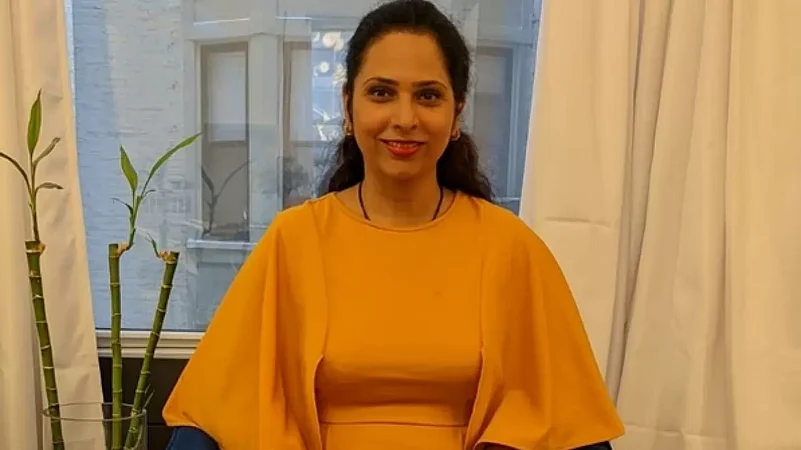Priya Samant has been an impact advisor for numerous films. In today’s times, two of the most popular films ‘The Kerala Story’ and ‘The Kashmir Files’ have had her as an impact advisor. While the position is quite new on film sets, she believes that it’s something that has always been needed.
Talking to Prateek Sur, Priya Samant opens up about what impact advising is, how she helps films, how much is she allowed to make changes, whether the audiences are ready to take offence to everything, and how she managed to make films like ‘The Kashmir Files’ and ‘The Kerala Story’ remain sensitive yet give out the right message. Excerpts from the candid chat:
You’re an impact advisor. It’s a job profile that’s not commonly heard in film circuits. Tell us a bit about what it is. And also, what is it exactly that you do?
Impact Advising is as of today a six-film-old concept that I gave to the industry back in (2019). Yes, it is relatively new, yet in a very short span of time has gained massive momentum. Simply put, it is the bridge between the Director's vision and the global audience, raising awareness about vital issues of the global community which stems a sense of unity in diversity and spreads knowledge about art, culture, traditions, challenges in society and so on. As an Impact Advisor, my role involves connecting the director's vision to the global audiences through awareness meets, strategizing on relevant audiences and forums for the issue, and of course, a strategic execution that helps scale the impact of the film at both macro and micro levels and creating ambassadors for the film.
If I’m not wrong, you come from a tech background and have done tech start-ups and then even worked in the US presidential campaign. Even during all those years, did you always have an interest in films or showbiz?
I'm glad you asked. Yes, I'm a techie and at present the CEO of an AI and Web 3-based start-up, namely Abris Inc, in Boston. We just launched our first AI product aichefs.co, feel free to check out. I have also been and member/advisor on the tech policy team on US Presidential elections. Having done all of the above, movies, theatre and Hindi cinema always had my heart being a Mumbaikar. I am originally from Mumbai, India and cannot imagine my childhood without movies. In fact, even here I'm quite active in local theatre groups, namely SETU and Kalashri. A side of me that saw the light of day with Impact when I got my first film Jhalki. Thanks to the producer and director of the film Mr Brahmanand Singh, who saw potential in the concept.
When and how did you land up becoming an impact advisor for films? Where did this journey start? Who offered you the first job, and did you apply for it or did it come through some recommendation?
‘Jhalki’ was my first film. And the journey of it all is quite a story. I was asked to host a reception for ‘Jhalki’ team as it was being showcased at Boston Film Festival. The reception was a short affair as the director did not get the message on time. However, we connected the next day, we talked in general about the movie, I gave some ideas, and the director and his associate director requested a meeting. We had a meeting and I pitched the concept and the rest is history.
How different is the work of an impact advisor from that of a film publicist?
A publicist and an impact advisor are two distinct roles that serve different purposes. The key distinction lies in the focus and expertise of each role: publicists specialize in reputation management and media relations. But an impact advisor operates in the realm of social impact and sustainable development, educating and creating awareness which in turn will create positive and meaningful change in society and the environment. This role comes with a heavy load of responsibility, a moral compass and a strategic vision to create an impact on the global community and the change-makers of the world and make them the ambassadors of the cause highlighted in the film. Simply put, a publicist's goal is to market or advertise a piece of information/news. Conversely, for an Impact Advisor, the goal is social awareness and educating the masses on a particular issue that concerns the global community.
You specialise in films like ‘The Kashmir Files’ and ‘The Kerala Story’. Both films have got a lot of attention from all over. What was your role in these projects as an impact advisor? What do you tell or advise the filmmakers or the producers? Like do this or don’t do this….
In every film the modus operandi shift with a shift in the cause/subject, the director's vision, and the message of the film. Which makes the course of work and strategic plan of action different and tailored for every project. Additionally, in all projects circumstantial factors were different. For instance, at the time of ‘The Kashmir Files’, we did physical events which included major stakeholders of the society. I even conceived and organized a special and very impactful Congressional Reception of Indian Americans from the Kashmiri-Pundit community at the US Capitol Hill, and the significance and role of caused-based cinema in changing the society at the First Migration Forum hosted at the UN.
Whereas for ‘The Kerala Story’, I had very limited time and the crew couldn't fly out, so I took it upon me as a challenge and organised several online impact events which included eminent personalities, scholars, lawyers, authors, and influencers. For instance, one of the major hits was our Twitter space event which was flooded with audiences joining from UK and the different parts of the world to hear about the issue from the film-makers and experts invited to speak about it.
How do you try and maintain the authenticity of what’s being shown on screen? Do you personally check all the facts presented or do you just take it at face value of what the filmmaker has envisioned?
That's a very good question. Coming from a tech background and having a strategic core, I do my own study about the cause or the film I'm offered. As far as the aspect of authenticity stands, my work in all of the films I have done so far has begun post-production. But I'm happy to share that a very interesting project is in the pipeline and the one where I'll be involved from the very beginning i.e. pre-production.
Many have called both these films as propaganda. What do you tell others so as to negate this chain of thought that these films aren’t propaganda?
I'm a believer in the fact that truth is always controversial. So my appeal to all the viewers and audiences is to first watch the film and then decide for themselves whether they like it or not. It's extremely unfair to comment without seeing it.
Many have said that in ‘The Kerala Story’ they could have at least shown some Muslim characters that were inherently good or were at least good to the families after the incidents. Why do you think there was not a single dialogue from any Muslim character who was good and not a party to the heinous crimes being committed?
As I said my expertise came in the latter stage, i.e. post-production, but as an impact advisor on this film and a viewer, I strongly feel the film highlights global issues like terrorism, women's rights, human rights, and more. Hence restricting the film within the shell of religion would be prejudice and injustice.
As an impact advisor do you also get to suggest changes in the script and screenplay of the film?
Since I have been involved in post-production for all six films, I haven't. But in my upcoming projects, I'm hopeful of the possibilities and opportunities that are yet to come. Also, the impact is more strategic and cause-based, hence changing the script is not as of now at the core of the concept but suggesting impact ideas if required.
Do you get to only suggest changes and the final call is in the hands of the director and producer on whether to listen to your suggestion or not? Or is it like they have to compulsorily make the changes that you’ve suggested otherwise they might have legal implications. How does it work?
As an Impact Advisor, I supervise, coordinate and organise impact to connect the film and supporting cause to global audiences and stakeholders. As I mentioned earlier, every film is unique and has a unique journey. For 'The Kerala Story', Vipul Shah ji, Sudipto Da, Adah and the entire team were very dedicated, enthused and available for all the events we did. Some were so early in the morning or quite late around 11 pm IST. Regardless the team was always there.
Why was there no need for an impact advisor in the past? Like films in the 1970s or 80s or even 2000s, never used to have such things.
I'd say the need has always been there because, since the inception of cinema and art, social and global issues have always been highlighted through films on the silver screen. But the possibility was questionable due to less or no technological advancement. On a lighter note, there was no Priya then. Unlike today where technology has turned the tables completely and the world has become a global village. This has also led to the recognition of this new vertical, proudly through me starting in 2019.
Do you feel that in India nowadays everyone is ready to take offence to anything and everything? Is that why filmmakers need an impact advisor?
I'm glad you asked this question. I'd like to take this opportunity to bust such myths around impact. The concept at its core is about strategic social awareness globally and education. The by-product of these two goals is the end or fall in misconceptions.
As Indians, have we forgotten to take a joke on ourselves? Because people are suing films or even stand-up comics for their content whenever there’s something remotely offensive to even the smallest strata of the population. What do you think?
In my capacity as a creative individual, or theatre artist, I feel that freedom of speech and expression being one of the fundamental rights must be given its due and credibility. Coming from the world's largest democracy, tolerance and inclusivity should be embraced wholeheartedly to ensure the freedom that has been guaranteed to all of us as citizens of the nation. And showcasing, expressing one's thoughts is one of the basic and key practices to hold the fundamentals true to the core.
What next is on your plate? Which films or shows are you working on?
About my upcoming projects, I can say the next in the pipeline is also women's issues centric. I'm excited about this project I'll be on board right from the beginning, i.e. pre-production.



























